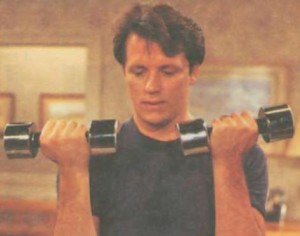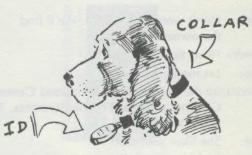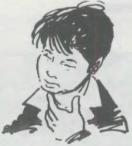Family Album 5 — The Right Magic
Смотреть онлайн курс — сериал на английском языке с субтитрами и упражнениями Family Album USA:
Упражнения и толковый словарь к 5 серии:
In this episode, you will study . . .
VOCABULARY
cloudy
thrilled
mild
well done
grateful
patient
emergency
spoil
GRAMMAR AND EXPRESSIONS
making suggestions
negative yes/no questions
talking about the weather
PRONUNCIATION
want to (wanna)
out of (outa)
the letters ti (sh)
U.S. LIFE
Do Americans have much leisure time
What are some typical superstitions in the United States?
YOUR TURN
• What do you do in your leisure time?
• Do you have any superstitions?
Here is the complete study material for Episode 5. Use these materials before or after you watch

hand: to give
How about… ? Use this phrase to suggest something
enough for an army. Use this expression to mean that you have more than enough of something. Of course, Grandpa didn’t really cook enough bacon for an army.
You going . . . ? = Are you going .. . ? This is an informal use.
want to. Robbie uses the informal pronunciation, wanna.

Anyway. Use this word to show that you think something is not important. Anyway usually begins or ends a sentence.
program: instructions on a disk to tell a computer what to do
Maybe you can . . . Use this phrase to suggest something for someone to do.
work at it: to continue trying to do something
YOUR TURN
Are personal computers popular in your country?
crispy: cooked so that it breaks easily
What are you doing tomorrow? = What will you do tomorrow? You can use the present progressive verb tense to refer to future plans.
Nothing much. = Nothing important.
Maybe . . . could . . . You can use this phrase to make a suggestion.
children’s ward: the part of the hospital where children stay
I’ve got to run. = I must leave right now. This is an informal expression.
Going fishing? = Are you going fishing? Also use the verb go with these other activities: go bowling, go running, go swimming, go dancing, and go shopping.
We didn’t catch anything. = We didn’t get any fish.
Remember our fishing trips? = Do you remember our fishing trips?
out of the boat. Philip says outa the boat. In informal conversation, people often do not pronounce the letter f in of.
Maybe . . . should . . . You can use this phrase to make a suggestion.
Don’t you have to work? = I thought you had to work. Use a negative yes/no question if you thought something was true, but now you have a reason not to be sure. Before this conversation, Grandpa thought that Philip had to work tomorrow. But now Philip is suggesting a fishing trip, so Grandpa has a reason to believe that Philip doesn’t have to work tomorrow.

paper work: record keeping
thrilled: excited and happy
It’ll be like old times. You can use this expression about a future event that will be like a happy experience in the past.
What’s the weather going to be like? Use this question to ask about the weather at a future time.
Radio says .. .= The radio says .. . Grandpa sometimes cuts the beginning of a sentence. Here, it is not correct to cut the article the.
mild: not too hot and not too cold
U.S. LIFE
Like Philip, many Americans have trouble finding time for personal activities such as fishing. But most Americans are able to enjoy some leisure’ time each week. Because they are so busy, many Americans need to plan their leisure time carefully.
YOUR TURN
• Do you have much leisure time?
• About how many hours of leisure time do you have each week?
Activities
WEATHER
That’s the weather going to be like in the U.S.A. today? Refer to the map to find your answers. Circle a or b
1. In New York City, it will be ___________.
a. sunny and a little cloudy b. cloudy and raining
2. In Miami, it is going to be _____________.
a. cloudy and cold b. sunny and hot
3. In St. Louis, you can expect ___________.
a. rain b. snow
4. In Denver, it is going to __________.
a. rain b. snow
5. In Los Angeles, it’ll be ____________.
a. sunny and a little cloudy b. sunny and warm
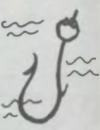
Here we go. = We’re starting now. This is an informal expression.
before eating. Use an -ing verb form (eating) after a preposition (before).
Now, the important thing is to get the hook close to the fish. Philip is trying to be funny. Of course Robbie knows that the hook must be near the fish.
Not a chance! = That’s impossible.
Hi, there! This is an informal way to say hello.
all: completely

lodge: a small house to stay in during a trip or vacation
No way! = Absolutely not; forget it.
Come on. = Do it now
You bet. = You can be sure.
Let’s ...= Let us .. . Use Let’s to make a suggestion for you and someone else to do something.
U.S. LIFE

Grandpa tells Robbie that to catch fish, he should say, «Fish, fish,’send me a fish.» For Grandpa, this is «the right magic.» It is his own superstition. To have a superstition is to believe that something brings good or bad luck, with no scientific reason to think so. There are many common good-luck superstitions in the U.S. Finding a four-leaf clover and knocking on wood are two examples. Some people believe that walking under a ladder and the number 13 bring bad luck. In many apartment and office buildings in the U.S., there is no 13th floor. The 14th floor follows the 12th!
YOUR TURN
• What are some common superstitions in your country?
• Do you have any superstitions of your own? If so, what are they?
well done: cooked for a long time
burned: cooked too long
chef: a professional cook
Easy does it. = Relax; go slowly.
That a boy. = That’s it. These two expression mean «You’re doing well.»
Blanket. When you go to sleep, you cover yourself with a blanket.
Son. Of course, Albert isn’t really Philip’s son. Older people sometimes use son to speak directly to a young boy.
Activities
DESCRIBING A SEQUENCE
What was the correct sequence of events in Act II? Complete each sentence in the following paragraph. For each answer, use a phrase that is under one of the pictures.
First, Grandpa, Philip, and Robbie __________________. Next, Grandpa _________. Later on, they ______________. After that, Robbie ____________. Finally, Albert _____________.
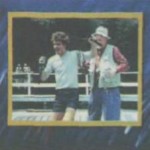 | 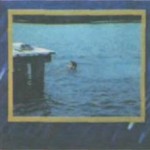 | 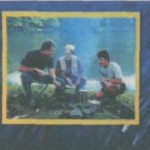 |
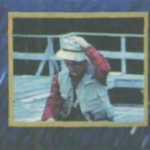 |  |
CATCH PHRASES
Here are some lines of dialogue from Act II. Which line came after each of the following sentences? Choose the correct answer from the fishing net. Then write the answer on the blank line.
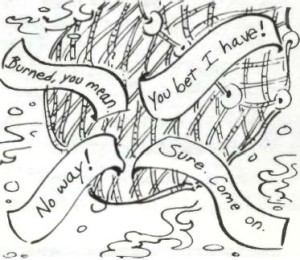
Philip: _______________.
2. Philip: The right magic. Do it for Robbie, Dad.
Grandpa: You remember?
Philip: ____________.
3. Robbie: Dad, you got one, too!
Philip: ___________.
4. Philip: I hope you like your fish well done
Grandpa: _________.
wrap: to fold around; cover
quite a guy: a wonderful man
grateful: thankful
So long. = Good-bye.
What do you say we . . . ? Use this phrase to make an informal suggestion.
Beeper. A doctor often carries a beeper so that a hospital can call him. The beeper makes a sound, and then the doctor knows that he should call the hospital.
Uh-oh. This sound shows that there is a problem.
get to: to go to immediately
patients. A patient is a sick person. Doctors take care of patients, often in a hospital. In this word, the letters ti sound like sh. Other examples include words ending in -tion, such as nation and election.
Why are you back . . . ? = Why did you return . . . ?
emergency: a sudden situation that needs fast action
spoil: to ruin
frozen fish
Pop: Dad; Father
Why don’t we . . . ? You can use this phrase to begin a suggestion.
schedule: a list of the times for certain things to happen
Activities
Here are some activities to help you check your understanding of this episode.
MAKING SUGGESTIONS
There are many ways to begin a suggestion in English. Grandpa and Philip use the following phrases to make suggestions in this episode.
Maybe . . . could / What do you say / Maybe . . . can / Why don’t / Maybe… should / How about / Let’s
How did Grandpa and Philip make each of the suggestions below? Look back at the script to find the correct words to complete each blank space.
ACT I
1. Grandpa: Well, _____ your dad and I _____ take you fishing with us
2. Philip: _____ we ______ spend some time together next weekend.
3. Grandpa: ______ we ______ do it again.
4. Philip: ______ tomorrow?
ACT II
5. Philip: OK, Robbie, _____ you _____ watch him.
6. Philip: _____ build a fire and cook it.
ACT III
7. Grandpa: Well, ____ we get back to our fishing?
8. Philip: _____ we do it again?
9. Philip: ______ next Saturday?
WHAT DO YOU SAY?
What can you say in each of the following situations? Choose the best sentence or phrase from the box. Then write it on the blank line.
I’m very grateful / It’ll be like old times / I’m thrilled / I’ve got to run / Nothing much / Come on / You bet
1. You must stop talking to your friend because you are late for an appointment. You say,» _____.»
2. You were feeling sad. Then a friend talked to you for many hours. Now you are feeling much better. You want to thank your friend, so you say, «_____.»
3. You are in love for the first time in your life. Someone asks you, «How do you feel?» You say, ” ____”.
4. Your friend is afraid to tell you his problem. You want to help him, so you say,» ______. You can talk to me.»
5. You have no special plans for next weekend. A friend asks, «What are you doing next Saturday?» You answer, “________.”
6. You receive a surprise telephone call from an old friend. You last spoke to her ten years ago. You plan to meet for dinner tomorrow. You say, «______.»
7. A friend asks you to help her, and you want to help. She asks, «Are you sure you have enough time?» You answer “________!”



